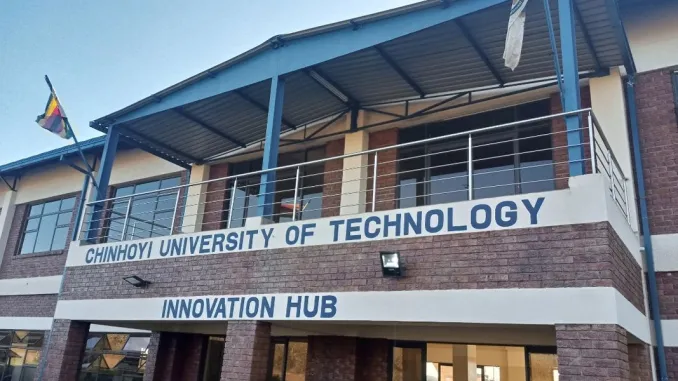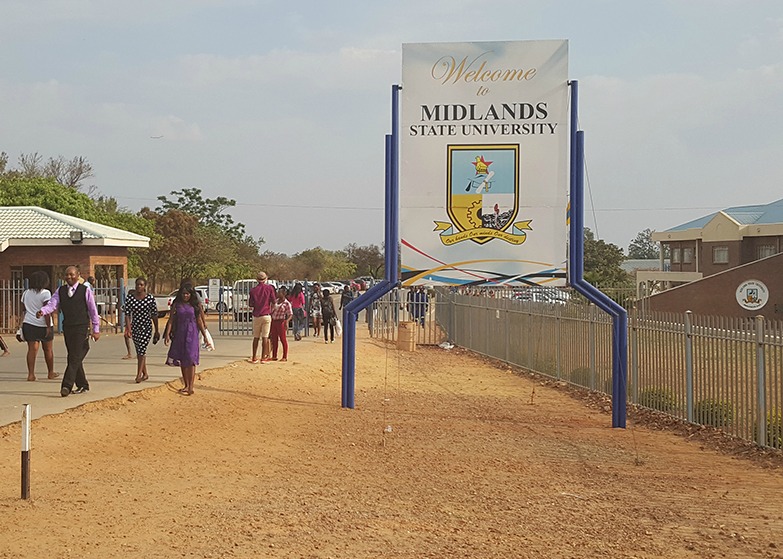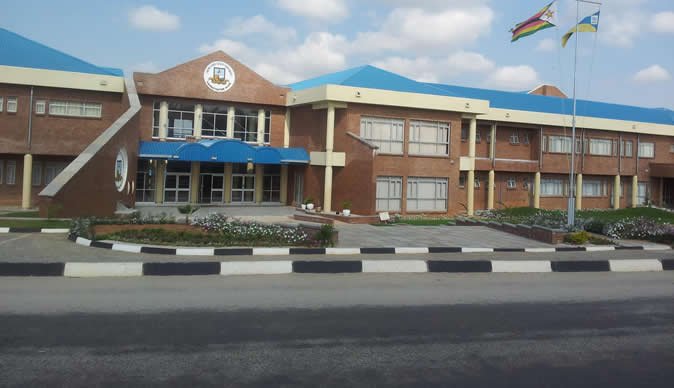Zimbabwean Higher Education: Explore Women’s University, CUT, and MSU for Academic Excellence.
Institutional Profile:
Established in 2002, Women’s University in Africa (WUA) stands as a beacon of private higher education situated in the serene outskirts of Harare, Zimbabwe’s bustling metropolis. Officially sanctioned by the Ministry of Higher and Tertiary Education, Innovation, Science and Technology Development, WUA is a coeducational institution offering an array of accredited degree programs. With a mission centered on bridging gender disparities and nurturing educational equity, WUA embodies a commitment to academic excellence and societal progress.
| Alternative names | WUA |
|---|---|
| Founded | 2002 |
| Accreditation | Zimbabwe Council for Higher Education (ZIMCHE) |
| Motto | Addressing Gender Disparity and Fostering Equality in University Education |
Location and contacts
| Address | 188 Sam Nujoma Avondale Harare Zimbabwe |
|---|---|
| City population | 2,150,000 |
Academic Offerings:
WUA’s academic spectrum encompasses various fields of study across undergraduate and postgraduate levels. The institution’s commitment to academic breadth and depth is reflected in its diverse disciplines, including Arts & Humanities, Business & Social Sciences, Medicine & Health, Science & Technology, and Engineering.
Admissions and Enrollment:
- Gender Policy: WUA maintains a coeducational environment, welcoming both men and women.
- Admission Criteria: Prospective students undergo a selective admission process, evaluated based on academic records and performance.
- Acceptance Rate: Specific data on acceptance rates is not reported.
- Total Enrollment: Enrollment statistics are not currently available.
Facilities and Services:
WUA extends essential facilities and services to support its academic community, including a dedicated library and administrative amenities. While specific details on total enrollment and faculty size are not provided, WUA ensures a conducive learning environment conducive to scholarly pursuits.
Programs and Degrees
The table below displays academic fields with programs and courses that lead to Bachelor’s, Master’s, and Doctorate degrees offered by Women’s University in Africa.
Note that the table provides a general overview and might not cover all the specific majors available at the university. Always visit the university’s website for the most up-to-date information on the programs offered.
| Programs | Bachelor | Master | Doctoral |
|---|---|---|---|
| Art & Design | No | No | No |
| Biology | Yes | Yes | No |
| Business | Yes | Yes | No |
| Chemistry | No | No | No |
| Computer Science | Yes | Yes | No |
| Economics | Yes | Yes | No |
| Engineering | No | No | No |
| Environmental Science | Yes | Yes | No |
| Liberal Arts & Social Sciences | Yes | Yes | No |
| Mathematics | Yes | Yes | No |
| Medicine | No | No | No |
| Physics | No | No | No |
| Psychology | Yes | Yes | No |
| National Diploma | Child Care and Development, Environmental Management, Management, Nursing, Preschool Education, Social Work |
|---|---|
| Bachelor Degree | Child Care and Development, Preschool Education, Primary Education |
| Bachelor Degree – Honours | Accountancy, Agricultural Business, Agricultural Education, Agriculture, Animal Husbandry, Business Computing, Computer Science, Dairy, Environmental Management, Finance, Gender Studies, Horticulture, Information Sciences, Information Technology, Marketing, Meat and Poultry, Midwifery, Nursing, Psychology, Social and Community Services, Social Work, Sociology, Transport Management |
| Postgraduate Diploma | Nursing, Social Work |
| Master Degree | Accountancy, Agricultural Business, Animal Husbandry, Business Administration, Communication Arts, Development Studies, Gender Studies, Management, Marketing, Preschool Education, Public Administration, Social Policy |
| Doctorate | Agricultural Business, Animal Husbandry, Anthropology, Curriculum, Development Studies, Economics, Educational Psychology, Environmental Management, Health Sciences, Horticulture, Information Sciences, Leadership, Mathematics Education, Preschool Education, Public Administration, Sociology |
Recognition and Accreditation:
- Legal Status: Endorsed by the Ministry of Higher and Tertiary Education, Innovation, Science and Technology Development of Zimbabwe, WUA holds institutional recognition and accreditation.
- Programmatic Accreditations: Accredited by the Zimbabwe Council on Higher Education (ZimCHE), affirming the institution’s commitment to academic quality and integrity.

Affiliations and Memberships:
- Association Ties: WUA is affiliated with esteemed organizations such as the Association of African Universities (AAU), fostering collaborative opportunities and global engagement.
Acceptance rate & Admissions
| Admissions Requirements | Two A level passes and five ‘O’ levels including English. For mature students – 5 ‘O’ levels plus 2 years work experience in the relevant field. For Master’s degrees, an upper second class degree is required |
|---|---|
| Academic Calendar | September to August |
Conclusion:
Women’s University in Africa stands as a testament to educational empowerment, championing gender equity and academic excellence. With a diverse academic portfolio and a commitment to societal impact, WUA continues to shape the educational landscape of Zimbabwe and beyond, inspiring generations to pursue knowledge and contribute to positive change. For further details on programs, admissions, and institutional updates, prospective students are encouraged to explore WUA’s official website and contact the admissions office for personalized assistance.
Chinhoyi University of Technology (CUT): Courses and Overview
Here’s an overview of CUT’s EduRank statistics and institutional profile:
General information
| Alternative names | CUT |
|---|---|
| Founded | 2001 |
| Accreditation | Zimbabwe Council for Higher Education (ZIMCHE) |
| Motto | Technology, Innovation and Wealth |
Location and contacts
| Address | Private Bag 7724 Chinhoyi Zimbabwe |
|---|---|
| City population | 57,000 |
EduRank Positioning:
- Global Ranking: CUT is positioned at #6465 out of 14,131 universities worldwide, reflecting its growing influence and contribution to the global academic landscape.
- Continental Influence: Ranked #257 among 1,104 institutions in Africa, CUT plays a significant role in advancing technology and research initiatives across the continent.
- National Prominence: As the 5th best university out of 18 in Zimbabwe, CUT demonstrates its leadership and impact within the Zimbabwean higher education sector.
- Subject Specialization: Notably recognized at #1591 out of 2,377 institutions for Forestry, CUT emphasizes sustainable environmental practices and natural resource management.
Institutional Characteristics:
- Non-Profit Status: Operating as a non-profit institution, CUT prioritizes academic advancement and research excellence over commercial interests.
- Funding Model: Supported by a public-private partnership, CUT ensures sustainable financing to support its educational and research endeavors.
- Highest Degree Offered: Offers Doctorate degree programs, empowering students to pursue advanced research and scholarly contributions in diverse fields.
- Website Accessibility: The CUT website, available in English, serves as a comprehensive platform offering valuable information and resources for students, faculty, and researchers.
Enrollment and Acceptance:
- Enrollment: With an unspecified enrollment size, CUT fosters a conducive learning environment characterized by academic diversity and inclusivity.
- Acceptance Rate: While specific data on acceptance rates is unavailable, CUT maintains an accessible admission process, ensuring equitable opportunities for qualified applicants.
Research Impact:
- Research Output: With 895 scientific papers published, CUT contributes significantly to the global knowledge base across various disciplines.
- Citation Influence: Garnering 7,860 citations, CUT’s research profile underscores its commitment to scholarly excellence and impactful contributions to academia and society.
Academic Offerings:
- Program Diversity: CUT offers a wide range of academic majors across disciplines such as Environmental Science, Biology, Engineering, Law, and Business, providing students with diverse pathways for intellectual growth and career development.
- Admissions Requirements: Admission to programs typically requires meeting competitive admission standards, ensuring academic rigor and preparedness among incoming students.
- Academic Calendar: Following a semester-based academic calendar, CUT provides structured learning opportunities throughout the year, facilitating student success and academic progression.

Chinhoyi University of Technology faculties and divisions
| Graduate School : Business | Business Administration, Management, Transport Management |
|---|---|
| Institute : Lifelong Learning and Development Studies | Communication Studies, Development Studies, Heritage Preservation, Indigenous Studies, Modern Languages |
| School : Agricultural Sciences and Technology | Agricultural Engineering, Animal Husbandry, Biotechnology, Crop Production, Environmental Studies, Food Science, Food Technology, Harvest Technology, Hydraulic Engineering, Irrigation |
| School : Art and Design | Clothing and Sewing, Design, Fashion Design, Fine Arts, Textile Technology |
| School : Engineering Science and Technology | Electronic Engineering, Energy Engineering, Environmental Engineering, Information Technology, Mechanical Engineering, Petroleum and Gas Engineering, Production Engineering, Telecommunications Engineering |
| School : Entrepreneurship and Business Sciences | Accountancy, Business Administration, Consumer Studies, Finance, Management, Marketing, Transport Management |
| School : Hospitality and Tourism | Hotel Management, Parks and Recreation, Tourism |
| School : Natural Sciences and Mathematics | Biology, Chemistry, Mathematics, Physics, Statistics |
| School : Wildlife, Ecology and Conservation | Ecology, Environmental Management, Fishery, Water Science, Wildlife |
In summary, Chinhoyi University of Technology remains dedicated to fostering technological innovation, research excellence, and sustainable development. Through its unwavering commitment to education and research, CUT continues to shape the future of Zimbabwean higher education and contribute meaningfully to global knowledge advancement and societal progress.
Midlands State University (MSU): Academic Excellence and Research Innovation.
Here’s a comprehensive overview of MSU’s EduRank statistics and institutional profile:
General information
| Alternative names | MSU |
|---|---|
| Founded | 2000 |
| Accreditation | Zimbabwe Council for Higher Education (ZIMCHE) |
| Motto | Our Hands, Our Minds, Our Destiny |
Location and contacts
| Address | Post Bag 9055 Gweru, Midlands Zimbabwe |
|---|
EduRank Positioning:
- Global Ranking: MSU holds a commendable position at #5071 among 14,131 universities worldwide, reflecting its significant presence in the global academic arena.
- Continental Influence: Ranked #169 out of 1,104 institutions in Africa, MSU plays a pivotal role in advancing education and research initiatives across the continent.
- National Prominence: Positioned at #4 out of 18 universities in Zimbabwe, MSU demonstrates leadership and excellence within the Zimbabwean higher education landscape.
- Subject Specialization: Notably recognized at #641 out of 1,000 institutions for Human Rights Law, MSU underscores its dedication to promoting justice and human rights advocacy.
Enrollment and Acceptance:
- Enrollment: With an enrollment of 14,000 students, MSU fosters a vibrant academic community characterized by diversity and inclusivity.
- Acceptance Rate: While specific data on acceptance rates is unavailable, MSU maintains an accessible admission process, ensuring equitable opportunities for aspiring students to pursue higher education.

Institutional Characteristics:
- Non-Profit Status: Operating as a non-profit institution, MSU prioritizes educational advancement and societal impact over commercial interests.
- Funding Model: Supported by a public-private partnership, MSU ensures sustainable financing to uphold its educational and research endeavors.
- Highest Degree Offered: Offers Master’s degree programs, empowering students to pursue advanced studies and specialized research in their chosen fields.
- Website Accessibility: The MSU website, available in English, serves as a comprehensive platform offering valuable information and resources for students, faculty, and researchers.
Research Impact:
- Research Output: With 1,805 scientific papers published, MSU contributes significantly to the global knowledge base across diverse fields.
- Citation Influence: Garnering 7,641 citations, MSU’s research profile reflects its commitment to scholarly excellence and impactful contributions to academia and society.
Academic Offerings:
- Program Diversity: MSU offers a wide array of academic majors across disciplines such as Liberal Arts & Social Sciences, Law, Environmental Science, Engineering, and Business, providing students with diverse pathways for intellectual growth and career development.
- Admissions Requirements: Admission to undergraduate programs typically requires 2 Advanced Level passes, while Master’s programs necessitate a good first degree, ensuring academic rigor and preparedness among incoming students.
- Academic Calendar: Following a March to December academic calendar, MSU provides structured learning opportunities throughout the year, fostering a conducive environment for academic excellence.
Midlands State University faculties and divisions
| Campus : Zvishavane Campus | Political Sciences, Public Administration |
|---|---|
| College : Applied Sciences | Chemical Engineering, Industrial Engineering, Mining Engineering |
| Faculty : Arts | African Languages, African Studies, Archaeology, Communication Studies, Cultural Studies, Development Studies, English, Film, History, International Studies, Modern Languages, Museum Studies, Religious Studies, Theatre, Theology |
| Faculty : Commerce | Accountancy, Banking, Business Administration, Business and Commerce, Economics, Finance, Insurance, Management, Marketing, Retailing and Wholesaling, Tourism, Transport Management |
| Faculty : Education | Adult Education, Education, Educational Administration, Educational Technology, Gender Studies |
| Faculty : Law | Law |
| Faculty : Medicine | Anatomy, Behavioural Sciences, Biology, Medicine, Physiology, Surgery |
| Faculty : Mining Sciences | Geology, Materials Engineering, Metallurgical Engineering, Mining Engineering |
| Faculty : Natural Resources Management and Agriculture | Agricultural Economics, Agriculture, Agronomy, Animal Husbandry, Horticulture, Natural Resources, Soil Management, Water Management, Wildlife |
| Faculty : Science and Technology | Biological and Life Sciences, Chemistry, Computer Science, Food Science, Information Technology, Mathematics, Natural Sciences, Nutrition, Physics, Surveying and Mapping, Telecommunications Engineering |
| Faculty : Social Sciences | Environmental Studies, Geography (Human), Government, Human Resources, Media Studies, Music, Musicology, Psychology, Social Sciences, Social Studies |
| Graduate School : Business Leadership | Business Administration |

In summary, Midlands State University stands as a bastion of educational excellence, research innovation, and social responsibility. Through its unwavering commitment to scholarship and service, MSU continues to shape the future of Zimbabwean higher education and contribute meaningfully to global knowledge advancement and societal development.

